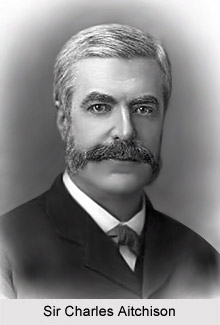 In June 1886, Lord Dufferin appointed a Public Services Commission to examine the methods of recruiting Indians as members of the Indian Civil Service. It was composed of fifteen members of whom six were Indians.
In June 1886, Lord Dufferin appointed a Public Services Commission to examine the methods of recruiting Indians as members of the Indian Civil Service. It was composed of fifteen members of whom six were Indians.
In January 1888, led by Sir Charles Aitchison (1832-1896), the Commission rejected the proposal of simultaneous examinations of candidates in London and India for the Indian Civil Service. However, the Public Services Commission did recommend raising the maximum age of eligibility for entrance into the service from nineteen to twenty-three years of age. Other measures included in the regulations of the Commission were - members of the defunct Statutory Civil Service could remain in their existing positions, a Provincial Civil Service was to receive ninety-three appointments in the Indian Civil Service and that some Provincial Service appointments be developed in the special departments such as Archaeological, Education, Forest, Police, Postal and Public Works departments.
In 1892, the Commission`s provisions were adopted officially.
This article is a stub. You can enrich by adding more information to it. Send your Write Up to content@indianetzone.com



















